M Moser’s Amsterdam living lab: A smart building retrofit targeting net zero
M Moser’s Amsterdam living lab is all about sustainability. This new space demonstrates how technology can strengthen operational efficiency and support ambitious climate goals, an invisible partner for making better decisions about design.
The approach continually aligns the space with the design firm’s needs, offering a responsive solution to modern building management.
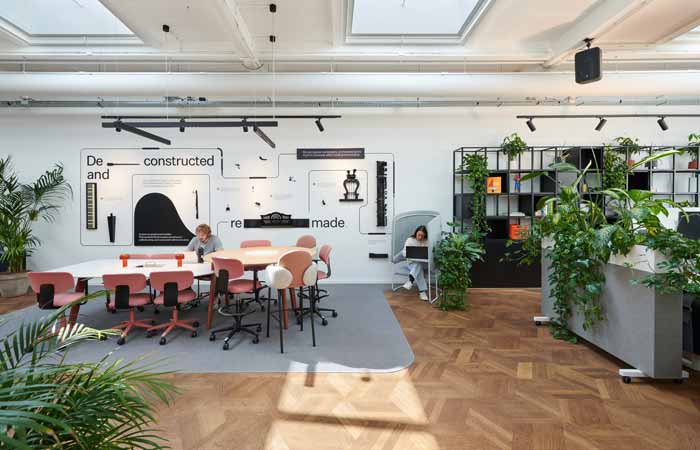
At a glance
- M Moser Europe’s most ambitiously decarbonised project to date targeting ISO 14064 certification.
- Identifying opportunities for improvement with an invisible layer of technology.
- Advancing M Moser’s climate targets with circularity and technological innovation.
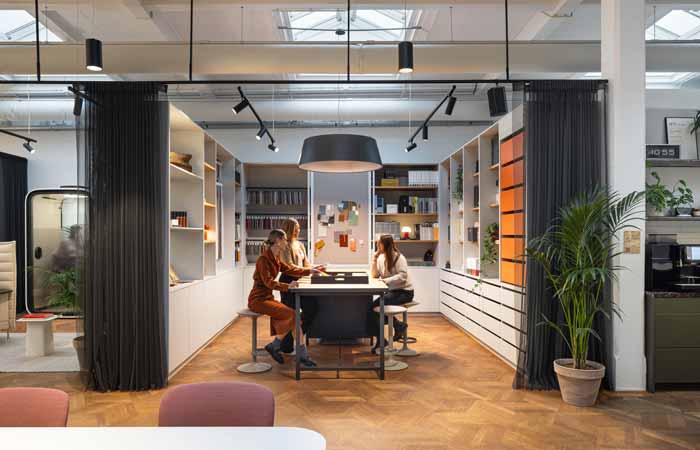
Sustainability targets
The studio is actively working towards a WELL Building Standard – Platinum accreditation, as well as ISO 14064, one of the most ambitious net zero certifications available.
The global interiors firm minimised carbon consumption in design and construction, recording all sources of emissions to offset the balance on completion. In addition, they aim to maintain a net zero operational status.
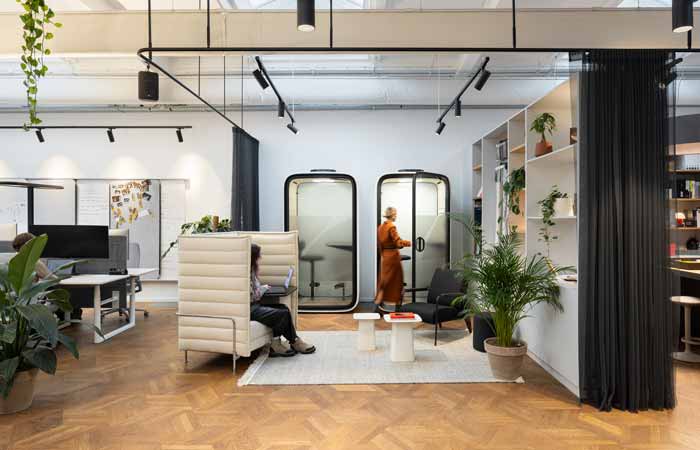
Occupying a restored concert hall
Their building search prioritised things that cannot be changed, like location, natural light, openness and character. These elements were essential for their design strategy to be a success. M Moser set out to build ‘only what they need’.
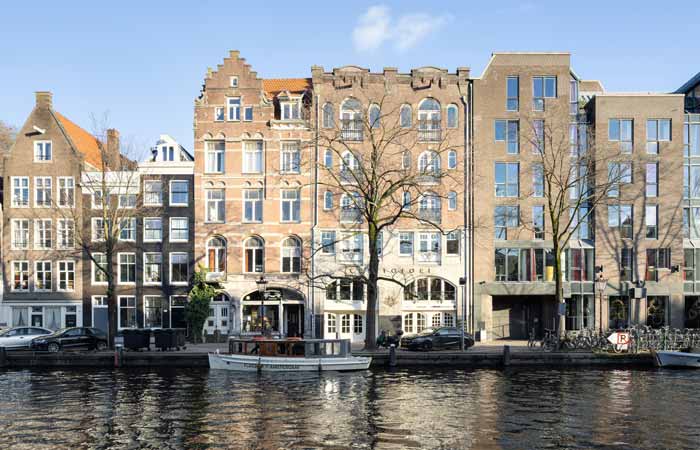
Choosing a beautiful canal building that feels authentic to Amsterdam. Its namesake, Bartolomeo Cristofori, is credited with inventing the piano in 1709.
Repurposed in 1901, the building once served as a concert hall. To this day, its musical heritage is evident throughout the space.
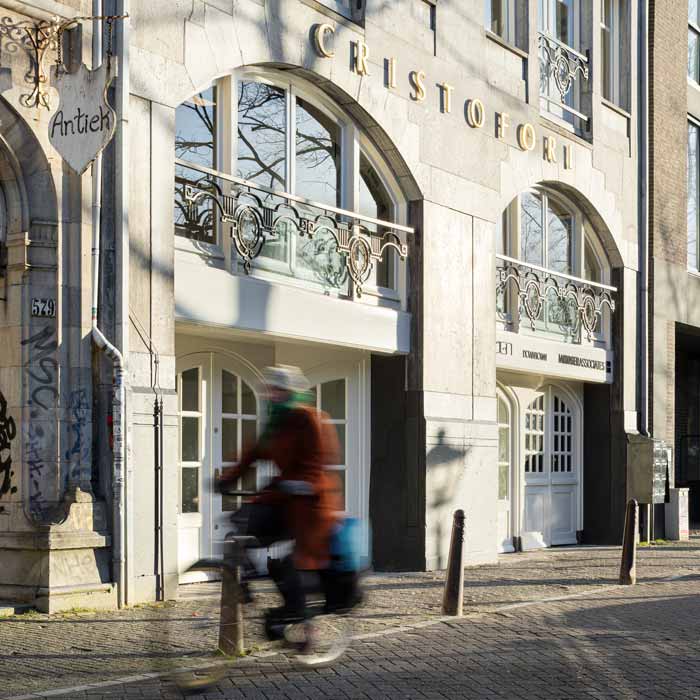
Brand experience
M Moser’s concept of “a guide to the invisible” reinforces themes of musicality, sustainability and technology.
The brand experience team added bespoke art, objects, signage and installations. For example, they built an interactive site, that allows guests to scan QR codes and learn more about the living lab as they move around.
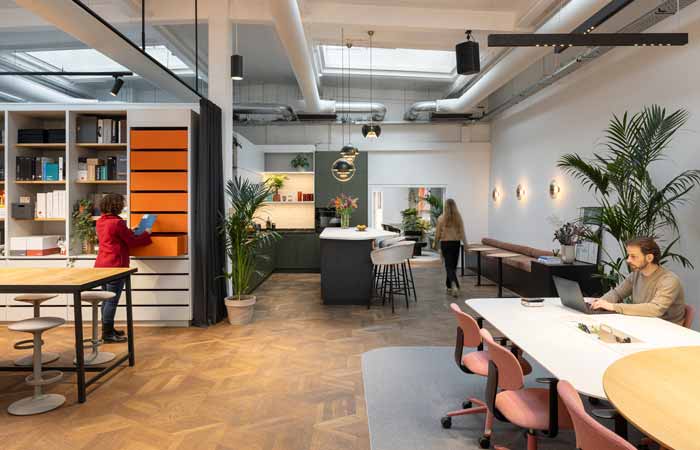
M Moser wanted the art to feel meaningful, connecting the team to their workspace and inviting discussion with guests. In the centre of the studio sits a deconstructed piano installation made with parts donated by a local piano workshop.
Raquel Machado, Associate Director, M Moser Associates, said:
“In reaching for net zero, we’ve thrown away the rulebook and grown creatively.”
Maximising adaptability
To maintain the former concert hall’s charm, the design firm minimised construction and repurposed materials. They didn’t build any dry partitions, and everything they installed is movable or can be disassembled.
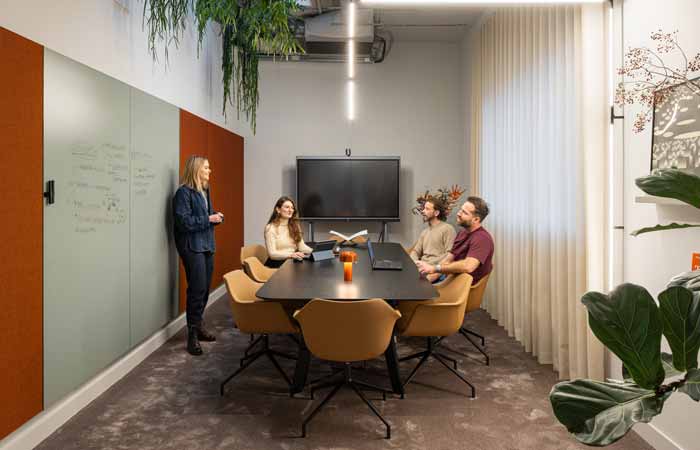
Lighting is set on tracks to make it moveable and task lighting is provided through freestanding fixtures. Therefore, ensuring the technology supports layout changes without new construction.
The modular sample table was made by repurposing the previous tenant’s kitchen island. M Moser upgraded it by adding a new top made from reclaimed timber from a previous client project.
Monitoring the living lab
Sensors analyse space performance and generate detailed reports on energy usage and carbon emissions. The system also provides insights into space utilisation, work preferences and occupant behaviour. All this data is integrated into a cloud-based digital twin.
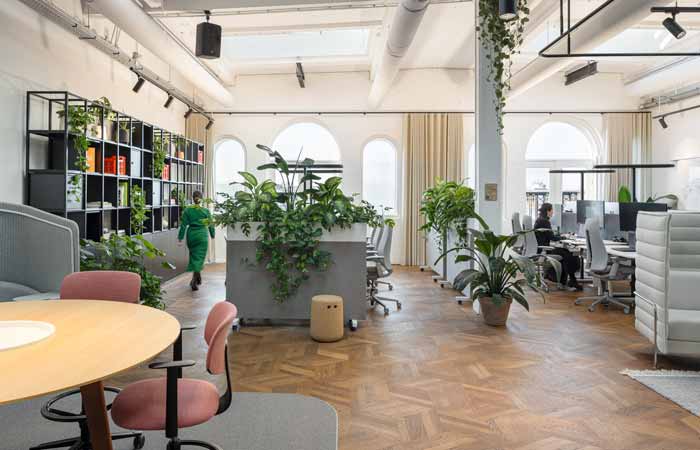
A real-time dashboard located in our studio displays key metrics, such as energy usage, air quality, occupancy, and noise. M Moser’s design, strategy, and engineering teams can analyse that data and turn it into action – reducing energy consumption, giving people more control over their environment, or adapting the space to be more efficient.
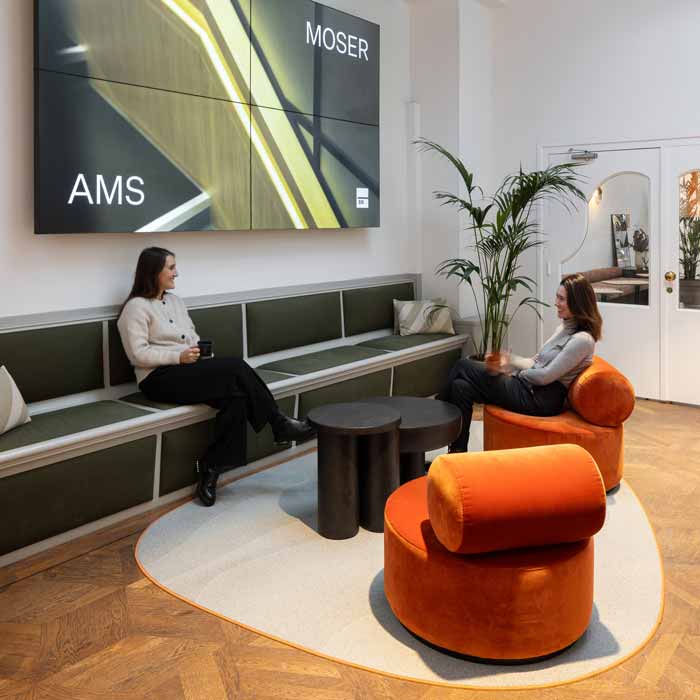
The firm plan to review every six months and interpret with their strategists.
Much of this technology was being tested for the first time. As such the firm wouldn’t recommend all of it, but have learned in the process and can now better advise their clients.
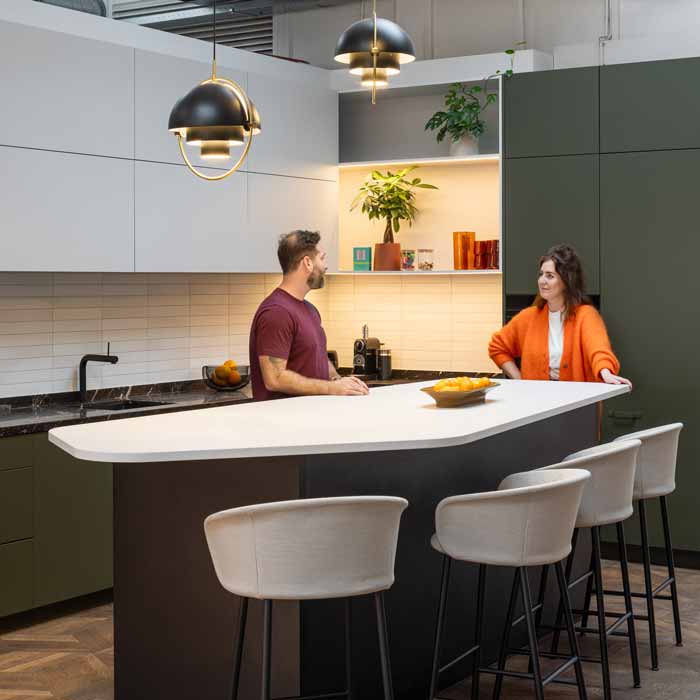
Completion date: 2024
Location: Amsterdam
Area: 3,500 sq ft
Accreditations: Targeting WELL Building Standard – Platinum and ISO 14064
Photographer: Stijn Poelstra and Alex Kendrick




